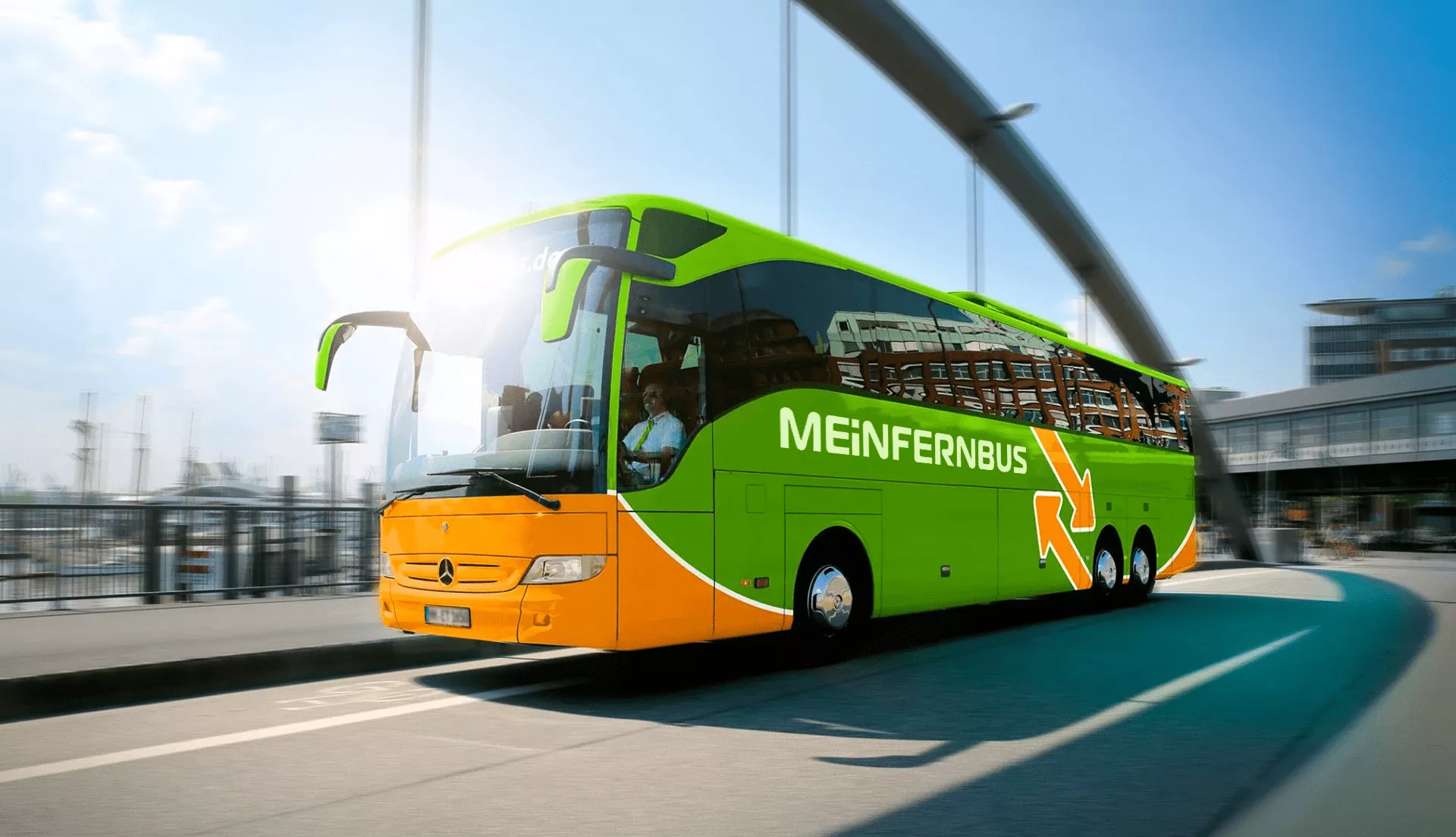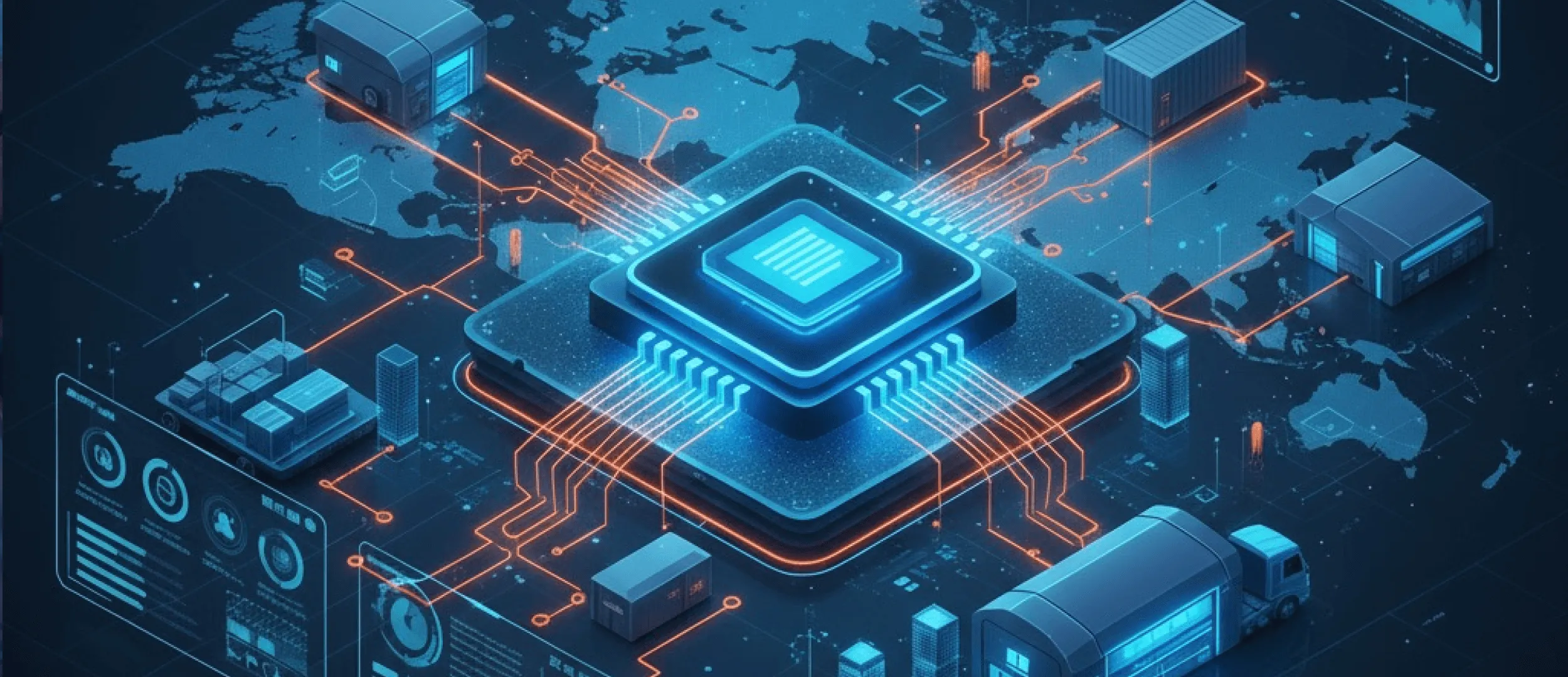
Are you a business owner whose supply chain is a complex web of moving parts? But what if there was a way to simplify the chaos and bring order to the madness? It's not a flashy marketing campaign or a charismatic CEO. No, it's something far more powerful and often overlooked: the humble ERP system.
But what is an ERP system in logistics? In this post, we're about to dive into the world of enterprise resource planning and discover how it can be the key to unlocking your company’s full potential.
The Role of ERP in Supply Chain Management
ERP is a type of software that brings all of a company's key datum and processes together in one central hub. It's the ultimate tool for keeping things organized and running smoothly.
Businesses can see every facet of their supply chain in the moment using ERP. This visibility is crucial for making informed decisions and staying on top of any potential issues.
Yet, Enterprise Resource Planning isn't just about seeing what's happening. It's also about making things happen. Many routine supply chain tasks can be automated with this software. Low inventory alerts, reordering, and even shipping route optimization can all be handled by ERP without breaking a sweat. This automation frees up your supply chain team to tackle more strategic, high-value work.
Moreover, ERP is a master at fostering collaboration across departments and with external partners. Everyone works from the same centralized information hub. Procurement, production, sales, and logistics can all align and collaborate like a well-oiled unit.
Key Benefits of ERP in Supply Chain Management
So, what are some of the biggest perks of enterprise resource planning in supply chain management?
- Better efficiency. ERP can lead to some serious boosts in efficiency. With all your data in one place and tasks being automated, things run more smoothly. No more manufacturing bottlenecks or wasted time.
- Real-time visibility. You get a bird's-eye view of your entire supply chain in real time, with no more guesswork or outdated data. You can spot issues and opportunities as they happen.
- Collaboration. ERP breaks down departmental and partner barriers. This unity leads to faster issue resolution, better forecasting, and improved overall efficiency.
- Cost savings. Of course, the bottom line is always top of mind for any business. And that's where ERP really shines. While the question "How much does ERP cost?" is important, it's equally crucial to consider the long-term ROI. Plus, with better data and insights, companies can make more strategic, sensible choices that encourage growth.
- Scalability. As your business grows, ERP scales right along with you. It can handle increased complexity, new product listings, and expanding markets without missing a beat.
- Increased customer retention. When you've got your supply chain running like a well-oiled machine, guess what? Your customers notice. Orders get fulfilled faster and more accurately. All of this leads to happier, more loyal customers who stick around for the long haul. They trust that you'll deliver the goods time and time again. That kind of customer retention is priceless.
- Fewer IT issues. ERP can also simplify your IT situation. Instead of a mishmash of disconnected systems and databases, you've got one unified platform. This means fewer compatibility problems, less need for manual data entry and reconciliation, and reduced supply chain errors. Plus, many systems are cloud-based these days. This means less hardware to maintain and update.
Want a web app that does more?
Let's build a solution that's smart, sleek, and powerful.
Alina
Client Manager

How to choose the ERP Supply Chain Management Solution
With so many options on the market, it can be tough to know where to start. Here are some key factors to consider.
First, assess your company's unique requirements. Every business has different pain points and objectives. So it's crucial to identify yours upfront. Do you need to improve inventory accuracy? Streamline order fulfillment? Enhance collaboration with suppliers? Clarifying your specific goals will help you narrow down the features that matter most.
Next, consider the scalability. Your business is bound to evolve over time, so you want a system that can grow with you. Look for a platform that can accommodate new products, markets, and increased transaction volumes without requiring major overhauls or causing performance issues.
Integration is another vital aspect. Your system should play nicely with your existing software and processes. Ensure that the solution you choose can seamlessly connect with your other key systems, such as CRM, WMS, and TMS.
Of course, budget is always a consideration. ERP implementations can be significant investments. It's important to find a solution that delivers value for your money. Weigh the long-term benefits and ROI potential against how much does it cost to implement an erp system.
Finally, vet potential development vendors carefully. Look for providers with a proven track record in your industry, a strong commitment to innovation, and excellent customer support. Read case studies, request demos, and ask for references to get a well-rounded picture of their strengths and weaknesses.
Implementing ERP in Your Supply Chain
The Enterprise Resource Planning implementation process is a multi-stage journey that demands a structured approach. It begins with system design. This is where you define your requirements and map out the functionalities needed. Next comes data migration. You need to ensure that your existing data is accurately transferred to the new system.
Configuration follows, tailoring the software to your specific business processes. Thorough testing is crucial to identify and resolve any issues before going live. Training your team on the new system is essential for smooth adoption. Finally, the system's go-live marks the beginning of a new era in your supply chain management.
However, ERP implementation goes beyond just technical aspects. It requires a change management strategy to get everyone on board. Communicating the benefits of ERP and how it aligns with your organization's goals is crucial for stakeholder buy-in.
Engaging key users throughout the implementation process is a smart move. Their feedback can help identify areas for improvement and ensure smoother user adoption. Once the system is live, regularly monitor its performance and provide ongoing support.
ERP for Transport and Logistics
Enterprise resource planning is a game-changer for transport and logistics firms. Let's dive in and explore how ERP is revolutionizing the industry.
Fleet Management
ERP systems are great for fleet management. They provide real-time data on vehicle locations, fuel consumption, and maintenance schedules. This information helps companies make informed decisions. They can plan routes, reduce fuel costs, and cut vehicle downtime. They also automate routine tasks, freeing up time for more strategic work.
Warehouse Operations
Warehouses are the heart of logistics operations. ERP systems optimize warehouse management. They enable precise inventory tracking, from receiving to shipping. Companies can optimize storage space and reduce picking errors. It is possible to improve order fulfillment rates, too. For easy data collection, enterprise systems also support RFID and barcode scanning.
Order Processing
Enterprise systems simplify order processing for logistics companies. They centralize order data. This eliminates manual entry and reduces errors. Companies can track orders from placement to delivery with ease. They can also automate payment and invoice procedures. Faster order cycles, better cash flow, and more customer satisfaction are the results of this.
Real-Time Tracking
In the logistics industry, real-time visibility is vital. Unified operational software provides end-to-end tracking of shipments. Companies can track goods in transit and provide updates to customers. They can also proactively address delays or issues. This level of transparency strengthens bonds with clients and promotes trust.
Compliance and Documentation
Logistics companies face a myriad of regulations and paperwork. Enterprise systems help manage compliance and documentation. They store important documents. These can be permits, licenses, and customs forms. They also make sure that rules and industry standards are followed. This reduces the risk of penalties and enhances the company's reputation.
Effective Reporting and Data Analysis
This type of software has robust reporting and data analysis capabilities. In one single repository, they combine data from several sources. This helps companies generate comprehensive reports on key metrics. These might be delivery times, inventory levels, and transportation costs. The software also provides intuitive dashboards and data visualization tools.
Route Planning
ERP systems make it easier and more efficient. They use advanced algorithms to optimize routes. This reduces travel time and fuel consumption. It also ensures timely deliveries to customers. ERP considers various factors for route planning. These include vehicle capacity, traffic conditions, and delivery deadlines. It also analyzes historical data to predict potential delays.
Benefits of ERP to the Transport and Logistics Industry
So, why ERP systems are important? One of the key benefits of ERP for logistics is automated dispatching. The system assigns drivers and vehicles based on availability, location, and load requirements. This reduces manual work and human error.
These systems also use advanced algorithms to determine the most efficient routes. It cuts fuel costs and improves delivery times. Companies can plan routes that avoid traffic and meet tight deadlines. With ERP, logistics firms can provide better customer service. Real-time tracking and automated alerts keep customers informed. Faster deliveries and fewer errors boost customer satisfaction and loyalty.
The logistics industry is no stranger to data, and ERP solutions make it easier to harness its power. By consolidating information from various sources, these systems enable advanced analytics and reporting. This means that managers can gain valuable insights into trends, spot opportunities for development, and make data-driven decisions.
Of course, implementing an ERP system is not without its challenges. It requires a large time and resource commitment. Also, there may be a learning curve as staff adapt to new processes and technologies. But for companies that are serious about staying competitive in the transport and logistics industry, the benefits far outweigh the costs.
Improve Supply Chain Management With Stfalcon ERP
Stfalcon is a leading logistics software development company, offering cutting-edge ERP solutions for the logistics industry. With a proven track record of successful cases, Stfalcon has the expertise in developing custom supply chain software and driving business growth.
One notable example is our collaboration with MeinFernbus, a German transport service provider. We developed a comprehensive system tailored to their needs, consisting of a sales site, company management system, and API. The backend is the powerhouse of the system.
It encompasses travel planning, passenger volume management, flexible pricing tools, and comprehensive reporting. The system also includes data visualization, passenger alerts, agency and partner management, and real-time bus tracking.
With a deep understanding of the logistics industry and a commitment to innovation, Stfalcon is the ideal partner for businesses looking to enhance their supply chain management and stay ahead in the competitive landscape.
Conclusion
It is clear that ERP is not just a trend but a necessary tool for modern supply chain management. Don't let inefficiencies and outdated processes hold your logistics company back. Take the first step towards a more streamlined and profitable future by partnering with Stfalcon for your ERP needs. Contact us today to schedule a consultation and discover how we can help you transform your business.
Here, you will find out what does ERP stand for in supply chain and more.
FAQs about ERP in Supply Chain Management
What is ERP in Supply Chain Management?
The abbreviation stands for Enterprise Resource Planning. ERP systems integrate and manage key business processes across the supply chain. This includes processes like inventory management, order processing, purchasing, and logistics. ERP provides a centralized platform to streamline operations and information flow.
Can ERP systems be integrated with other supply chain technologies?
Yes. You can integrate this system with other ones. These are warehouse management systems (WMS), customer relationship management (CRM) systems, and transportation management systems (TMS).
How long does it take to implement an ERP system?
The implementation time varies and can take anywhere from 6 months to 2 years. Factors that influence the implementation timeline include data migration, customization requirements, user training, and the number of modules being implemented.
Is ERP the key to supply chain success?
ERP systems are a crucial component of effective supply chain management. They provide the foundation for streamlined processes and data visibility. It is an enabler, but it must be combined with the right strategies, people, and processes to achieve optimal results.

 Read the full case study
Read the full case study



